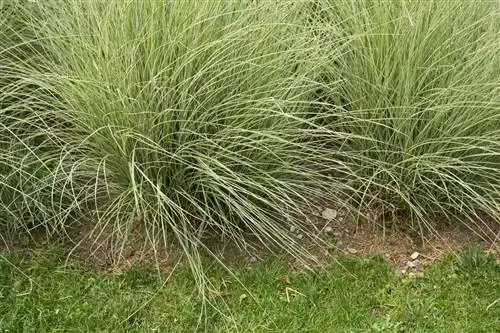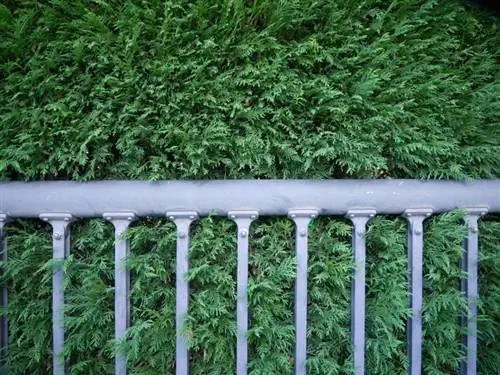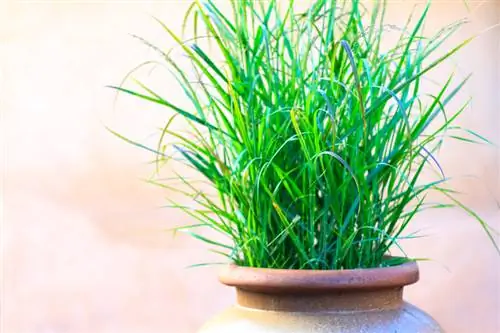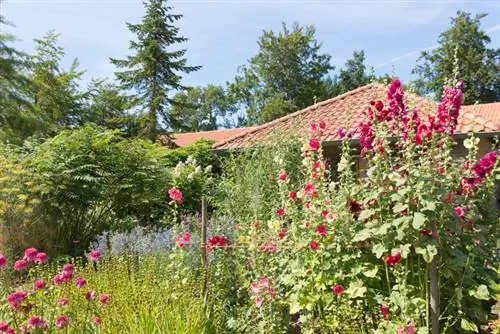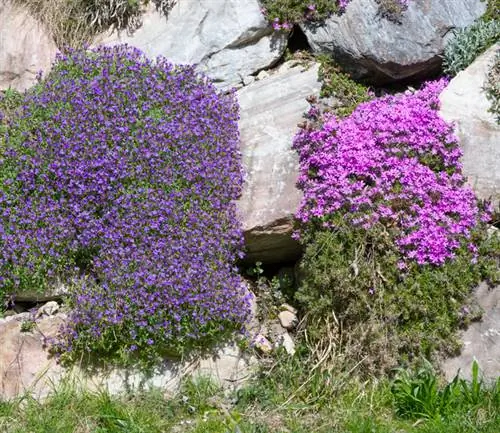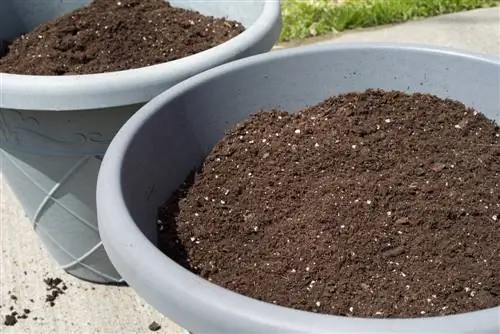- Author admin leonars@hobbygardeners.com.
- Public 2023-12-16 16:46.
- Last modified 2025-01-23 11:22.
The sweet grass, which comes from East Asia, is decorative and impresses with its softly falling leaves that sway in the wind. In order for miscanthus with the botanical name Miscanthus sinensis to thrive optimally, it is important to choose the right soil when planting.
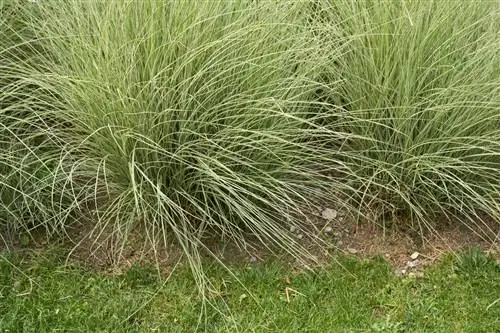
Which soil is best for Miscanthus?
Miscanthus, which can grow up to 300 cm high depending on the variety, requiresnutrient-rich, humus-rich, well-drained soilwith a neutral pH value between 5 and 8. The soil must be keptsufficiently moist, but waterlogging must be avoided at all costs.
Is heavy soil also suitable for miscanthus?
Heavy garden soils do not providegood conditionsfor Miscanthus, which generally requires little care - apart from regular watering, fertilizing and cutting back in late spring after sheltered overwintering outdoors. If the soil in your garden bed is relatively heavy, you should loosen it with sand before planting miscanthus
Is light garden soil suitable for miscanthus?
Just like soil that is too heavy, so is soilsandy soil that is too lightfor MiscanthusunsuitableIf you still want to grow the ornamental grass Miscanthus sinensis, you shouldenrich the soil with high-quality potting soil If the soil is too sandy, reduced growth must be expected. Always ensure that there is sufficient water permeability, as miscanthus is one of the plants that react very sensitively to waterlogging.
Which soil is suitable for miscanthus in the pot?
If Miscanthus is not to be planted in the garden in a sunny location, but rather cultivated in a pot (sufficiently large due to the rhizomes that form),conventional pot plant soilcan be used. It is important that the soil can store the irrigation water sufficiently so that the entire root ball does not dry out. To avoid waterlogging, a drainage layer made of clay granules at the bottom of the pot is recommended. As an alternative to potted plant soil, you can also use amixture of garden soil and compost, which is enriched withquartz sand to loosen it up.
What happens when the earth dries out?
In general, most Miscanthus varieties tolerateoccasional drought in the garden relatively wellHowever, it is advisable not to let the soil dry out completely and to counteract this by watering in good time. Especially in the first few years, the young plants tolerate dry periods poorly and need to be watered regularly and as needed until they are properly established in the location. Under no circumstances should the soil of potted plants dry out to such an extent that the dryness extends into the root ball.
Tip
Make sure the pH value is right
Miscanthus grows best when the pH of the soil is in the neutral range. If you're not sure whether the soil in your garden has a pH between 5 and 8, you can check with an easy-to-do soil test. Special test sets are commercially available in various versions and provide quick information about the condition of the soil.

